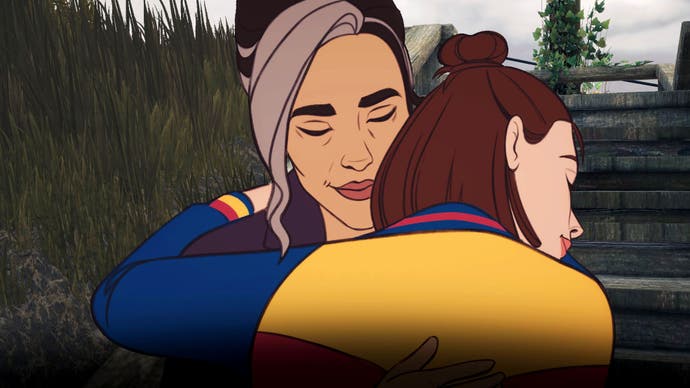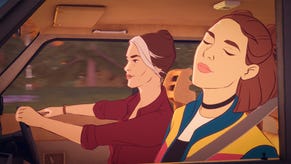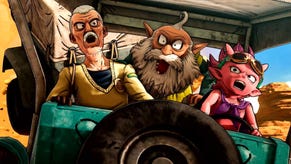Open Roads review - a pleasant road trip that doesn't go anywhere particularly memorable
A nice brake.
A gentle adventure into a family's secrets that's nicely crafted but over before it really begins.
I had some concerns about Open Roads when I saw a demo of it earlier this year, mostly because in what I saw, nothing much seemed to happen. A teenage girl walked around a house looking at objects and talked to her mother about them. We were promised a family mystery but there was barely any sight of it, and I wondered when it would all kick in. Now having played it, I realise why that was: there wasn't much there to tease to begin with. Open Roads is a slight game, I now know, both in terms of running length and scope. There aren't grand ambitions or wild adventures. Instead, there's a story about smaller details, about the seemingly mundane but no less important moments when relationships change, and about the imprints we leave behind.
In the game, you are Tess, a teenager who serves as the spark in the story. It's her curiosity, following the death of her grandma, that provokes the discovery you'll make, which leads to the adventure you'll have, and it's her tenacity that sees it through. It all begins in your grandma's house, which you and your mother shared with her up until her death, and which you're now packing to leave. Why you're leaving is something you don't immediately know - like so much else in the game, you'll discover it as you go along.
Open Roads almost always goes like this: you walk around an environment looking at any nearby objects, then you find one and it gives you a "Hey Mom!" prompt to call Mum over and have a chat about it. Occasionally you make observations to yourself, and sometimes you message people on your phone, but most of the time, you talk to Mum. She is really the only other character directly present in the game. And really, that's all there is to Open Roads. There are a couple of very minor puzzles and a few dialogue options, but nothing amounting to a puzzle game or choice and consequence.
Open Roads does what little it does very well, though. The production values are high. It's a subtle game but when you hear the birds chirping outside Grandma's house and planes flying distantly overhead, and the home improvements nearby - all as sunlight slants hazily through the window - it conjures a vivid summer's afternoon. And it's the perfect backdrop for slowing you down to the game's pace.
Take the many objects you pick up and look at too: there's an almost obsessive joy in their recreation. The game is set in the noughties and you can feel a longing in the game for them - for a time when smartphones hadn't rewritten the rules of engagement yet. It's a game of tangible memories you can pick up and turn over - of yearbooks and newspaper clippings and, vitally, printed photographs and handwritten letters, they being the evidence that primarily fuels your investigation. From the handwriting on the paper to the rust on tin cans, the objects all look convincingly real.
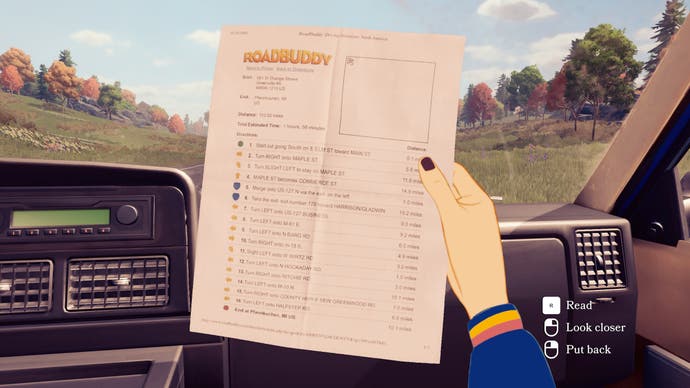
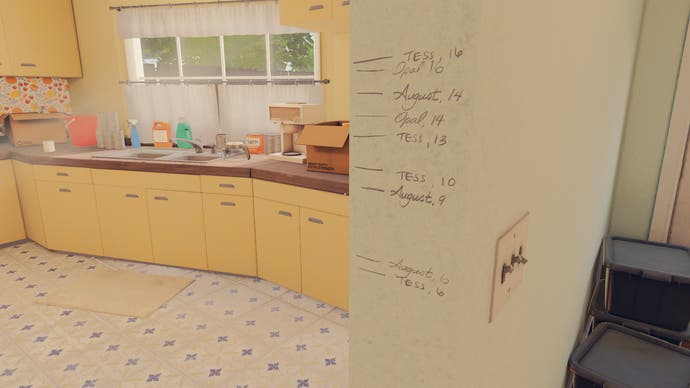
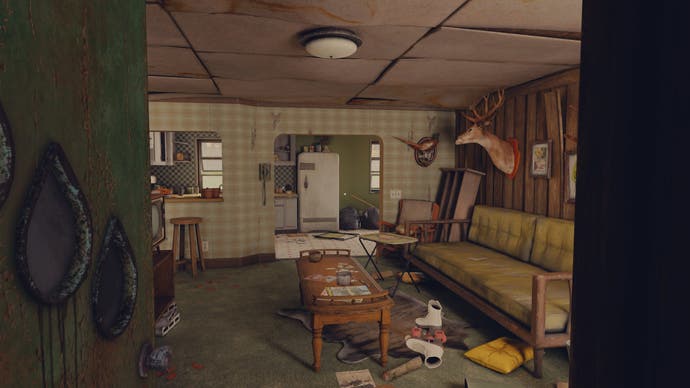
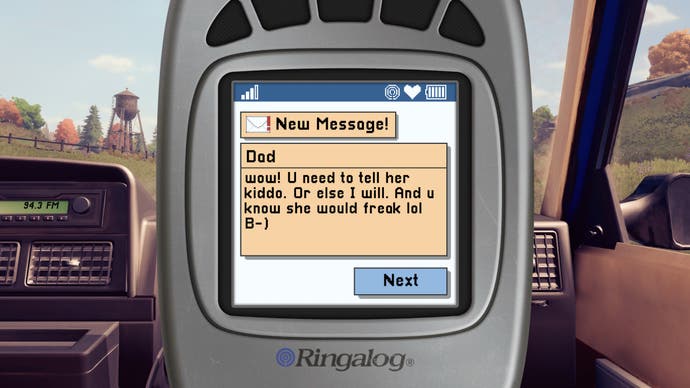
The game's environments are wonderfully lifelike too, almost photo-realistic, making for a pronounced clash with the paper-flat, magazine cut-out style of the characters. Characters who aren't fully animated, by the way - only partially. They'll gesticulate now and again, and change their body language to match their emotion, but there's no lip-syncing. It sounds jarring, but most of the time it works well enough to ignore. The only times it doesn't is when random gestures play during silent moments, which looks odd, and when the game zooms in and faces go blurry, as if they're out of focus. Again: odd.
The game relies heavily on vocal performances as a result, almost like a radio play, and there's some big-name Annapurna-enabled help. Kaitlyn Dever (Unbelievable, Dopesick) brings much needed energy as Tess, and the decorated Keri Russell (Felicity, The Americans, The Diplomat) brings palpable weariness as the mother Opal. Sometimes the performances veer on cheesy, but there's obvious quality here.
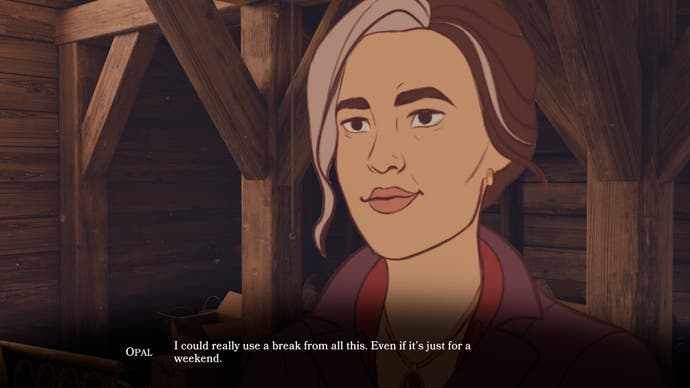
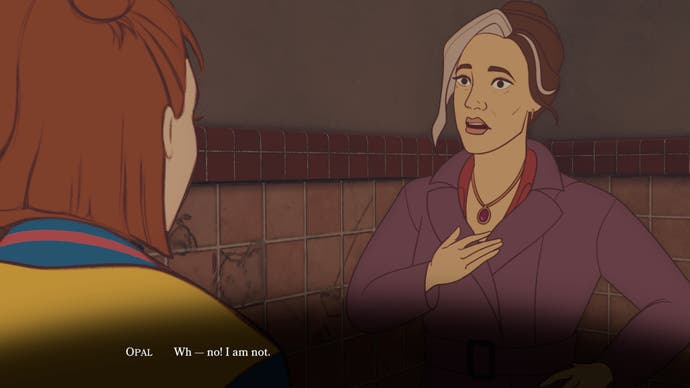
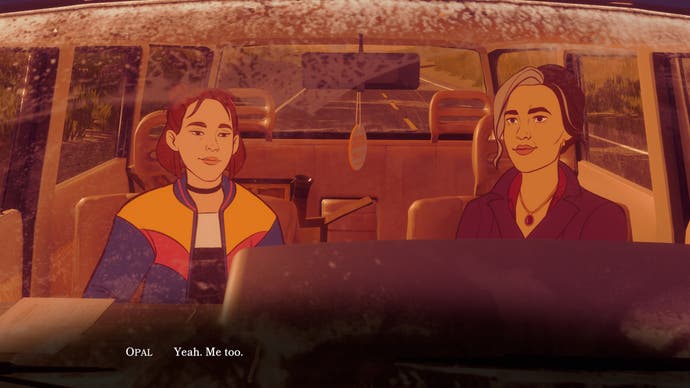
All of which combines to make Open Roads an experience that's pleasant to drift along to. The moment-to-moment uncovering of the mystery and your family history is gently absorbing, and provides the catalyst Opal and Tess need - mother and daughter - to come to some realisations of their own. Those thorny familial realisations are handled maturely and end up in a nice place of understanding, which I appreciate, and likely you'll end up with a warm glow from the game, as I did. It's a nice day out. It's just that as soon as it seems to get going, it's over and you're on your way home.
In some ways, I respect this, because it isn't often that you find many games content with telling short, two-and-a-half hour stories now, and ending there - which are a very welcome relief from the many-dozens-of-hours games out there. But at the same time, there's a lingering sense of: where did the four years of development go? It doesn't seem to add up. Perhaps the volatile Fullbright beginnings of the project took a long time to repair. Regardless, something nice has come from it. It's just not particularly memorable.
A copy of Open Roads was provided for review by Annapurna Interactive.
